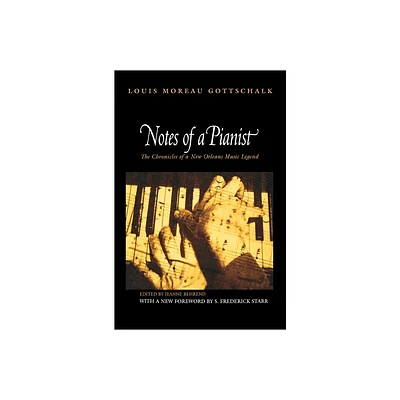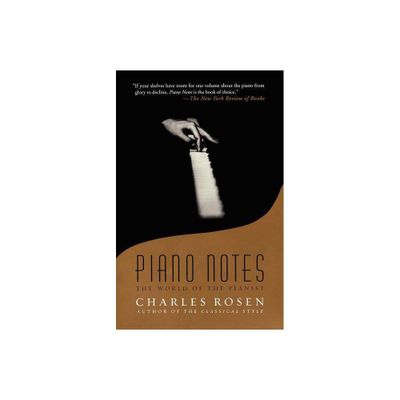Home
Piano Notes: the World of Pianist
Loading Inventory...
Barnes and Noble
Piano Notes: the World of Pianist
Current price: $16.99


Barnes and Noble
Piano Notes: the World of Pianist
Current price: $16.99
Loading Inventory...
Size: Paperback
*Product Information may vary - to confirm product availability, pricing, and additional information please contact Barnes and Noble
Among the world's instruments, the piano stands out as the most versatile, powerful, and misunderstood even by those who have spent much of their lives learning to play. In
Piano Notes,
a finalist for a 2003 National Book Critics Circle Award, Charles Rosen, one of the world's most talented pianists, distills a lifetime of wisdom and lore into an unforgettable tour of the hidden world of piano playing.
You'll read about how a note is produced, why a chord can move us, why the piano "hero and villain" of tonality has shaped the course of Western music, and why it is growing obsolete. Rosen explains what it means that Beethoven composed in his head whereas Mozart would never dream of doing so, why there are no
fortissimos
in the works of Ravel, and why a piano player's acrobatics have an important dramatic effect but nothing more. Ending on a contemplative note,
Piano Notes
offers an elegant argument that piano music "is not just sound or even significant sound" but a mechanical, physical, and fetishistic experience that faces new challenges in an era of recorded music. Rosen ponders whether piano playing will ever again be the same, and his insights astonish.
Piano Notes,
a finalist for a 2003 National Book Critics Circle Award, Charles Rosen, one of the world's most talented pianists, distills a lifetime of wisdom and lore into an unforgettable tour of the hidden world of piano playing.
You'll read about how a note is produced, why a chord can move us, why the piano "hero and villain" of tonality has shaped the course of Western music, and why it is growing obsolete. Rosen explains what it means that Beethoven composed in his head whereas Mozart would never dream of doing so, why there are no
fortissimos
in the works of Ravel, and why a piano player's acrobatics have an important dramatic effect but nothing more. Ending on a contemplative note,
Piano Notes
offers an elegant argument that piano music "is not just sound or even significant sound" but a mechanical, physical, and fetishistic experience that faces new challenges in an era of recorded music. Rosen ponders whether piano playing will ever again be the same, and his insights astonish.


















